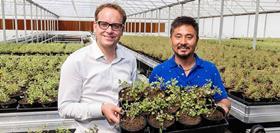
Supermarket giant Coles has opened a new round of grants as part of its Nurture Fund. Started in 2015, the Nurture Fund allows Australian farmers, producers and manufacturers to apply for financial support to help facilitate innovation and growth.
Grants of up to A$500,000 will be available for small and medium sized businesses under the new round of funding, with the goal to develop new products, technologies and processes.
Coles chief executive Steven Cain encouraged businesses to apply for financial support in Round 9 of the Coles Nurture Fund.
“At Coles, we want to win together with Australian producers by funding projects which drive innovation to inspire customers or improve sustainability on Aussie farms and production facilities,” he said.
“Together we hope to drive differentiation, sustainable practices, extend growing seasons and improve productivity.”
Businesses with innovative ideas, fewer than 50 full time employees and turnover of less than A$25m in annual revenue are eligible to apply.
Since it was established in 2015, the Coles Nurture Fund has awarded more than A$24m in financial support to over 60 Australian businesses to help them introduce ground-breaking technology, improve sustainability, establish new products and drive productivity.
Previous recipients of grants from the Coles Nurture Fund include Australian Fresh Leaf Herbs, Berry Yummy, Harvey Citrus, Manbulloo Mangoes, Moonrocks, Three Farmers and Westerway Raspberry Farm.
National Farmers Federation chief executive Tony Mahar said Australian farmers are amongst the most innovative in the world.
“For five years the Coles Nurture Fund has recognised and rewarded Aussie farmers who are leading the way in ingenuity and innovation. Each round of the Nurture Fund uncovers inspiring farm businesses pushing the boundaries when it comes to processes, technologies and value-adding.
“The Fund’s focus on sustainability and increased efficiencies is in direct alignment with the NFF’s vision to grow Australia’s overall farm gate output to A$100bn by 2030, up from A$60bn today,” concluded Mahar.



